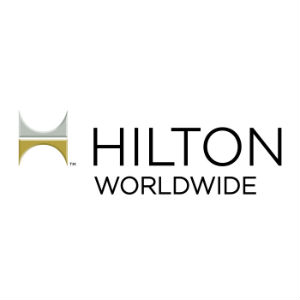Hilton Hotels CSR Programs and Initiatives
 Corporate social responsibility (CSR) can be defined as “the obligation of decision makers to take actions which protect and improve the welfare of society as a whole along with their own interests” (Carroll and Buchholtz, 2008, p.39). CSR represents a critically important aspect of a successful business regardless of the industry.
Corporate social responsibility (CSR) can be defined as “the obligation of decision makers to take actions which protect and improve the welfare of society as a whole along with their own interests” (Carroll and Buchholtz, 2008, p.39). CSR represents a critically important aspect of a successful business regardless of the industry.
Hilton Worldwide has announced its commitment to continually improve its CSR performance in the following directions:
- Employees
- Impact on the local community
- Environment
- Responsible sourcing
The program ‘Travel with Purpose’ launched in 2011 serves as a guiding principle behind Hilton CSR programs and initiatives.
The company releases Global Responsibility Report annually and it includes the details of CSR programs and initiatives engaged by the company. The table below illustrates highlights from Hilton Worldwide 2014-2015 Corporate Responsibility Report:
| Categories of CSR activities | Hilton Performance |
| Supporting local communities | October is a Global Month of Service for Hilton. In October 2015, teh company activated 4,145 volunteer projects worldwide resulting in 213,000 volunteer hours in 92 hours
Nearly 200 Travel with Purpose Action Grants were awarded in 2015 to support Hilton properties and local communities |
| Educating and empowering workers | Hilton Worldwide University offered 2 million courses and 5 million hours of learning for employees in 2015 alone
More than 14,000 Hilton managers attended its ethics and anti-corruption training in 2014 |
| Labour and human rights | The company achieved a maximum score of 100% on the Human Rights Campaign Foundation’s Corporate Equality Index |
| Employee health and safety | No information found |
| Gender equality and minorities | Women represent 51 per cent in Hilton’s US owned, managed and corporate locations
Since 2013 Hilton employed more than 7,300 veterans and their spouses |
| Environment
a) energy consumption b) water consumption c) Waste reduction and recycling
d) CO2 emissions |
Forbes has acknowledged Hilton as a Top 50 Green Brand and the company has been recognized as a Top Green Company in the World by Newsweek
The company has reduced energy used by 14.5 per cent since 2009 In 2015, Hilton used 14.1 per cent less water compared to the base year of 2009 Since 2009, Hilton has achieved a waste reduction of 27.6 per cent Hilton Worldwide announced a global partnership with the World Wildlife Fund (WWF) focusing on water stewardship, sustainable seafood and food waste reduction More than 650 hotels engaged in soap and amenity recycling in 2015, donating more than 600,000 pounds of soap Carbon output has been reduced by 20.9 per cent since 2009 |
| Sustainable sourcing | Hilton Worldwide bans shark fin in its restaurants and hotels around the world
More than 1,400 hotels (across five brands) required to switch all egg usage to cage-free eggs by 2017 and gestation free pork by 2018 |
| Other initiatives and charitable donations | Since 2014 Hilton provided apprenticeship programs,
career engagement and life skills training to more than 400,000 young people globally The company joined the 100,000 Opportunities commitment, an employer-led coalition committed to creating pathways to meaningful employment for America’s young people Nearly 600 organizations benefited from Hilton’s Hospitality+Service Training |
Hilton Hotels CSR performance[1]
Hilton Worldwide Holdings Inc. Report contains a criticism of Hilton Hotels CSR programs and initiatives. The report also illustrates the application of the major analytical strategic frameworks in business studies such as SWOT, PESTEL, Porter’s Five Forces, Value Chain analysis and McKinsey 7S Model on Hilton. Moreover, the report contains analysis of Hilton’s marketing strategy along with discussion of its leadership and organizational structure.
[1]Figures taken from Hilton Worldwide 2014-2015 Corporate Responsibility Report

